Nigerian Icons & History: Ojukwu, Ekpo, Political Parties, and the Civil War
Chukwuemeka Odumegwu Ojukwu (1933–2011) was a Nigerian military officer, politician, and leader of the secessionist state of Biafra during the Nigerian Civil War (1967–1970). Here’s a detailed overview of his life history, political activities, and involvement in the Nigerian Civil War:
Early Life and Education:
- Chukwuemeka Odumegwu Ojukwu was born on November 4, 1933, in Zungeru, Northern Nigeria, to Sir Louis Odumegwu Ojukwu, a wealthy businessman.
- He received his early education in Nigeria and later attended the Epsom College and the Royal Military Academy Sandhurst in the United Kingdom.
Military Career:
- Ojukwu joined the Nigerian Army in 1957 and rose through the ranks.
- He served in various capacities, including commanding officer and staff officer.
Political Tensions and the Biafran Declaration:
- In 1966, political and ethnic tensions in Nigeria escalated, leading to a series of coups and counter-coups.
- After the Northern counter-coup of July 1966, Ojukwu, then a lieutenant colonel, declared the secession of the Eastern Region as the Republic of Biafra on May 30, 1967.
Nigerian Civil War (Biafran War):
- The declaration of Biafra triggered the Nigerian Civil War, also known as the Biafran War, which lasted from 1967 to 1970.
- Ojukwu served as the military leader and Head of State of Biafra during the conflict.
- The war resulted in significant human suffering, including famine, and had lasting social, political, and economic impacts.
- In response to Igbo demands for secession, Ojukwu reorganised the Eastern Region as the Republic of Biafra, and he declared independence from Nigeria. Nigeria invaded Biafra, sparking the Nigerian Civil War. The Nigerian military, with support from the United Kingdom and the Soviet Union, blockaded Biafra and cut food supplies, which created a mass famine. Ojukwu made use of foreign media to highlight the plight of Biafran civilians and depict the war as genocide against Igbos. The shocking images of starving Biafran civilians turned the war into an international media sensation, as this was one of the first globally televised wars alongside the Vietnam War. Biafra received international humanitarian relief during the Biafran airlift.
- Biafra eventually capitulated to Nigerian forces in 1970 after millions of Biafran civilians died. Ojukwu subsequently fled to Ivory Coast in exile, where President Félix Houphouët-Boigny, who recognised Biafra as a sovereign and independent state, granted him political asylum. In 1981, newly democratically elected Nigerian president Shehu Shagari granted amnesty to Ojukwu, allowing him to return to Nigeria without facing political or legal consequences from the war. Ojukwu spent the remainder of his life unsuccessfully attempting to return to Nigerian politics as a democratically elected politician rather than a military ruler.
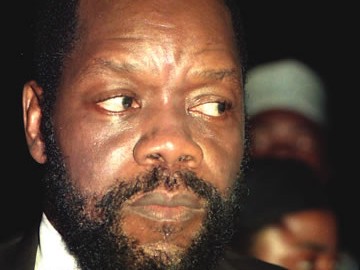
End of the Civil War and Exile:
- Biafra surrendered to Nigerian forces in January 1970, and the war came to an end.
- Ojukwu went into exile, and Biafra was reintegrated into Nigeria.
Return to Nigeria and Political Activities:
- Ojukwu returned to Nigeria in 1982 after being granted a pardon.
- He ventured into politics and contested various political offices, including the presidency, but did not achieve significant electoral success.
Later Years and Death:
- In his later years, Ojukwu remained involved in political discussions and occasionally contested elections.
- He passed away on November 26, 2011, in London, United Kingdom.
- His body was returned to Nigeria, where Nigerian president Goodluck Jonathan arranged a state funeral. He was buried with full military honours, including a 21-gun salute from the Nigerian Army, and thousands of people attended his funeral. Ojukwu remains a contentious figure in the history of Nigeria. Many Igbo people regard him as a hero and a messianic figure who did what was necessary to ensure the survival of Nigeria’s Eastern population while facing the possibility of a genocide after the 1966 coup. Other Nigerians have deemed Biafra’s secession unnecessary, blaming Ojukwu for the events of the war and accusing him of oppressing Biafra’s non-Igbo ethnic minorities
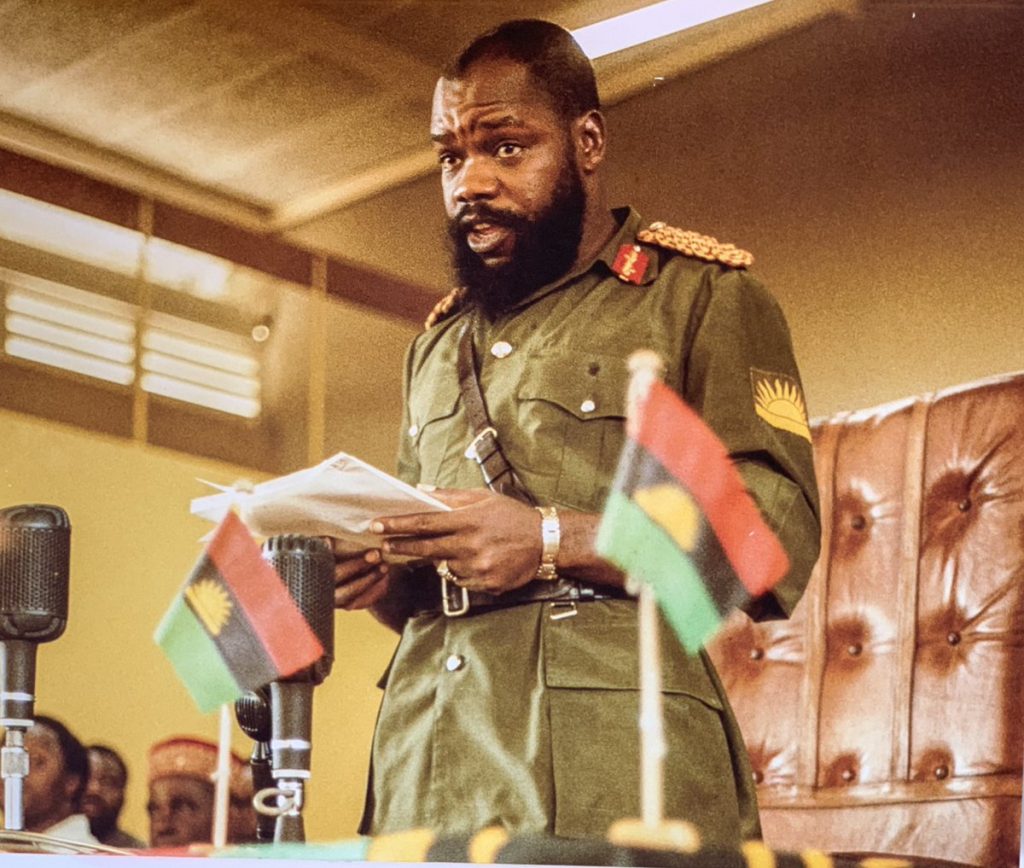
Legacy and Impact:
- Chukwuemeka Odumegwu Ojukwu is a controversial figure in Nigerian history. Some view him as a hero who stood up for the rights of the Igbo people, while others criticize him for the consequences of the Biafran War.
- The war and its aftermath left a lasting impact on Nigeria’s political landscape and raised issues of ethnic and national identity.
Chukwuemeka Odumegwu Ojukwu’s life and legacy are intertwined with the complex and tumultuous events of Nigerian history during the mid-20th century. His role in the Biafran War and his subsequent political engagements continue to be subjects of historical and political analysis in Nigeria.
Margaret Ekpo: Nigerian Politician and Women’s Rights Activist

Margaret Ekpo (1914–2006) was a Nigerian women’s rights activist, politician, and one of the foremost female figures in Nigeria’s struggle for independence. She played a pivotal role in advocating for women’s rights and social justice in the country. Here are key points about Margaret Ekpo:
- Early Life and Education:
- Margaret Ekpo was born on June 27, 1914, in Creek Town, Calabar, in what is now Cross River State, Nigeria.
- She attended various schools, including the prestigious Hope Waddell Training Institute in Calabar.
- Activism and Women’s Rights:
- Margaret Ekpo became actively involved in women’s rights and social activism during the colonial period.
- She was a member of the Aba Township Women’s Association and later played a crucial role in the formation of the Aba Women’s Union.
- Market Women Protests:
- Ekpo was part of the market women protests against British colonial policies, similar to the Aba Women’s Riot and other women-led movements in Nigeria.
- She was a vocal advocate for women’s economic empowerment and political participation.
- Political Engagement:
- Margaret Ekpo was one of the first Nigerian women to engage actively in politics. She joined the National Council of Nigeria and the Cameroons (NCNC), a political party that played a significant role in the struggle for independence.
- She served as a member of the Eastern Regional House of Assembly from 1961 to 1966.
- National Politics:
- Margaret Ekpo’s political influence extended beyond the regional level. She was a delegate to Nigeria’s Constitutional Conference in 1953 and attended the conferences that led to the country’s independence in 1960.
- Post-Independence Advocacy:
- After Nigeria gained independence, Ekpo continued her advocacy for women’s rights and social justice. She remained an influential figure in national politics.
- Recognition and Awards:
- Margaret Ekpo received several awards for her contributions to women’s rights and national development, including the Officer of the Order of the Niger (OON) in 1965.
- Legacy:
- Margaret Ekpo is widely celebrated as a pioneer in women’s activism and a trailblazer in Nigerian politics.
- She inspired generations of Nigerian women to become politically engaged and advocate for their rights.
- Death:
- Margaret Ekpo passed away on September 21, 2006, leaving behind a legacy of resilience, advocacy, and leadership.
Margaret Ekpo’s contributions to women’s rights, political activism, and her role in the struggle for Nigeria’s independence have left an indelible mark on the country’s history. She is remembered as a symbol of courage and dedication to the principles of equality and justice.
Exploring the Top 3 Political Parties in Nigeria
APC (ALL PROGRESSIVE CONGRESS)
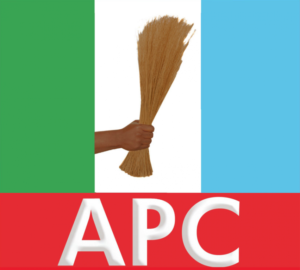
Formation and Early Success:
The All Progressives Congress (APC) was founded on February 6, 2013, through the merger of Nigeria’s three largest opposition parties – the Action Congress of Nigeria (ACN), the Congress for Progressive Change (CPC), and the All Nigeria Peoples Party (ANPP), along with a breakaway faction of the All Progressives Grand Alliance (APGA) and the new PDP faction. The party came to power in 2015, making history by unseating the governing party, the Peoples Democratic Party (PDP), through the victory of Muhammadu Buhari in the presidential election. This marked the first peaceful transfer of power from a governing to an opposition party in Nigerian history.
Post-2015 Developments:
Following the 2015 success, the APC won the majority of seats in the Senate and the House of Representatives. However, the party fell short of a super-majority needed to override PDP’s legislative blocking abilities. Waves of defections in 2018 led to the loss of federal legislative majorities, with key figures like Senate President Bukola Saraki and House Speaker Yakubu Dogara defecting to the PDP. Despite these challenges, Buhari was reelected in the 2019 general election, solidifying the party’s majorities in both chambers.
Presidential Victory in 2023:
In the 2023 general election, APC candidate Bola Tinubu emerged victorious, securing the presidency with 8,794,726 votes, as declared by the Independent National Electoral Commission (INEC).
Formation Process:
The party’s formation involved a resolution signed by representatives from the merging parties, including Tom Ikimi (ACN), Senator Annie Okonkwo (APGA), Ibrahim Shekarau (ANPP), and Garba Shehu (CPC). APC received approval from INEC in July 2013, leading to the withdrawal of operating licenses of the merged parties.
Historical Context (2013–2015):
In the period from 2013 to 2015, the APC witnessed significant political developments. Five serving Governors from the PDP defected to the APC, along with nearly 50 federal legislators, including Speaker Aminu Tambuwal. Despite facing challenges, including infighting and notable resignations to the PDP in 2014, the APC managed to affirm its majority in the Lower House by seating 179 members in January 2015. The party also faced electoral tests in off-year gubernatorial elections, with mixed results in states like Anambra, Ekiti, and Osun.
Economic Stance: The APC is widely perceived as a party that supports controlled market economic policies, emphasizing a significant and proactive role for government regulation in economic affairs. This stance aligns with the social democratic political philosophy of Obafemi Awolowo and the socialist, anti-class views of Aminu Kano. These ideological influences shape the party’s approach to economic issues, emphasizing a balance between free-market principles and government intervention.
2. PDP (PEOPLES DEMOCRATIC PARTY)
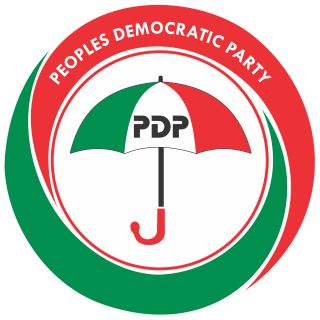
Political Position and Electoral History:
The Peoples Democratic Party (PDP) is one of Nigeria’s major political parties, historically holding a central position on the political spectrum, specifically leaning towards the centre-right. From 1999 to 2015, the PDP dominated Nigerian politics, winning every presidential election during this period, though not without controversy. The party faced allegations of electoral irregularities, especially in the 2007 elections that brought Umaru Yar’Adua to power amid accusations of fraud.
Historical Background and Leadership:
Established in 1998, the PDP’s first presidential primary nominated former military leader Olusegun Obasanjo, who won the 1999 presidential election with Atiku Abubakar as his running mate. The party continued its electoral success in the legislative elections of 2003, securing the majority in both the House of Representatives and the Senate. Obasanjo was re-elected in 2003, and later, Umaru Yar’Adua succeeded him in 2007. The PDP faced allegations of electoral fraud in the 2007 elections, but Yar’Adua assumed office.
Changes and Challenges:
The party faced challenges in 2011, with some members defecting to the Action Congress of Nigeria. Despite concerns about losing the presidency, Goodluck Jonathan, the PDP candidate, secured victory. The aftermath included protests from northern youth.
Slogans and Symbolism:
The PDP’s longstanding slogan is “Power to the people,” reflecting its commitment to democratic principles. In 2016, a new slogan, “Change the change,” was introduced by David Mark for the 2019 general elections. However, the chairman of the party’s board of trustees confirmed in 2018 that neither the slogan nor the party’s umbrella symbol would be changed.
Political Ideology and Economic Policies:
The PDP has a neoliberal economic stance, supporting economic liberalism and limited government regulation. Under President Obasanjo’s leadership in 2003, the party implemented economic reforms that involved conservative fiscal policies, reduced government spending, and the deregulation and privatization of various industries, including the Nigerian Telecommunications sector. Despite its neoliberal economic policies, the PDP adopts a more leftist stance concerning poverty and welfare, as seen in the launch of Nigeria’s first National Health Insurance Scheme (NHIS) in 2005.
In summary, the PDP has played a significant role in Nigerian politics, occupying a centre-right position, facing electoral successes and controversies, and advocating for a combination of neoliberal economic policies and leftist approaches to social issues such as poverty and healthcare.
3. LP (LABOUR PARTY)
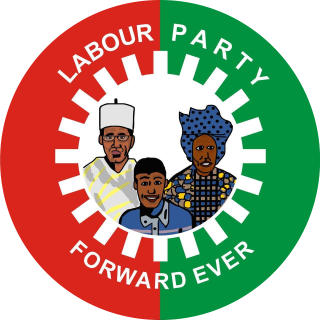
Labour Party (LP) in Nigeria:
Overview:
The Labour Party (LP) is a social democratic political party in Nigeria, initially established in 2002 as the Party for Social Democracy (PSD) and officially renamed the Labour Party in 2003. It operates based on the principles of social democracy, aiming to champion social justice, progress, and unity.
Key Events and History:
- Formation and Evolution:
- Founded in 2002 as the Party for Social Democracy (PSD) and later officially became the Labour Party in 2003.
- Established by the Nigeria Labour Congress, reflecting its roots in labor and social democratic ideology.
- Leadership Crisis (2021):
- Faced a leadership crisis in 2021 following the death of the National Chairman, Alhaji Abdulkadir Abdulsalam.
- Barrister Julius Abure was elected as the new National Chairman by the Labour Party National Executive Council (NEC).
- Peter Obi’s Entry (2022):
- In May 2022, former Anambra State Governor Peter Obi joined the Labour Party after leaving the People’s Democratic Party (PDP) with the intention of running for the 2023 Nigerian presidential election.
- Obi became the party’s presidential candidate after other aspirants withdrew from the contest.
- Union Support and 2023 Elections:
- Prior to the 2023 Nigerian general election, the Labour Party gained the support of both the Nigeria Labour Congress and the Trade Union Congress of Nigeria.
- Trade union federations explicitly endorsed Peter Obi, marking the first time they expressed such explicit support for a political party.
- Alex Otti, the Labour Party governorship candidate in Abia State, became the only elected Governor from the party in 2023.
Party Symbols:
- Logo:
- The party’s logo features a wheel with a man, woman, and child engraved in the center.
- The wheel symbolizes industry and work as the foundation for economic empowerment and national prosperity.
- The connection between the wheel and individuals signifies that governance and development must prioritize human advancement.
- Flag:
- The party’s flag is vertically divided into equal sections of red and green.
- Red represents transformation, while green represents agriculture.
- The party’s logo is positioned at the center of the flag.
In summary, the Labour Party in Nigeria has its roots in social democracy, with notable events including leadership changes, the entry of prominent figures like Peter Obi, and endorsements from labor unions leading up to the 2023 elections. The party’s symbols reflect its emphasis on economic empowerment, national prosperity, and social development.
Exploring Nigeria’s Civil War: The Biafran Conflict
The Nigerian Civil War, also known as the Biafran War, took place from July 6, 1967, to January 15, 1970. It was a conflict between the secessionist state of Biafra, led by Colonel Odumegwu Ojukwu, and the Nigerian federal government under General Yakubu Gowon. The war had complex roots in political, ethnic, and economic tensions and had significant humanitarian consequences.
Here are key points about the Nigerian Civil War:
Background:
- Ethnic and Political Tensions: The war had its roots in ethnic and political tensions that heightened after a series of coups and counter-coups in Nigeria during the mid-1960s.
- Eastern Region Secession: Colonel Odumegwu Ojukwu, the military governor of the Eastern Region, declared the secession of Biafra on May 30, 1967, following perceived marginalization and violence against the Igbo ethnic group.
Causes:
- Ethnic and Regional Disparities: The war reflected deep-seated ethnic and regional disparities in Nigeria, with tensions between the Igbo people in the Eastern Region and other ethnic groups in the country.
- Resource Control: Issues related to control over and distribution of Nigeria’s oil wealth were also significant contributors to the conflict.
- Policies and Perceptions: Political decisions and perceptions of unfairness in the federal government’s policies fueled secessionist sentiments.
Course of the War:
- Declaration of Independence: Ojukwu declared the Republic of Biafra in the southeastern part of Nigeria.
- Federal Response: The Nigerian federal government, led by General Gowon, responded with military action to suppress the secessionist movement.
- International Involvement: The conflict drew international attention, with various countries providing support to either side. Biafra received humanitarian aid from international organizations.
- Humanitarian Crisis: The war resulted in a severe humanitarian crisis, with widespread famine and disease affecting the civilian population. The Nigerian government’s blockade of Biafra contributed to the humanitarian tragedy.
End of the War:
- Surrender: Biafra surrendered to Nigerian forces on January 15, 1970, after a prolonged conflict marked by significant human suffering.
- Reintegration: Biafra was reintegrated into Nigeria, and efforts were made to heal the wounds of the war.
Impact and Legacy:
- Humanitarian Consequences: The war had a profound impact on the civilian population, leading to significant loss of life, especially due to famine and disease.
- Political Fallout: The war left lasting scars on Nigeria’s political landscape and contributed to ongoing challenges related to governance, ethnic relations, and resource distribution.
- National Unity and Reconciliation: Efforts have been made in post-war Nigeria to promote national unity, reconciliation, and development.
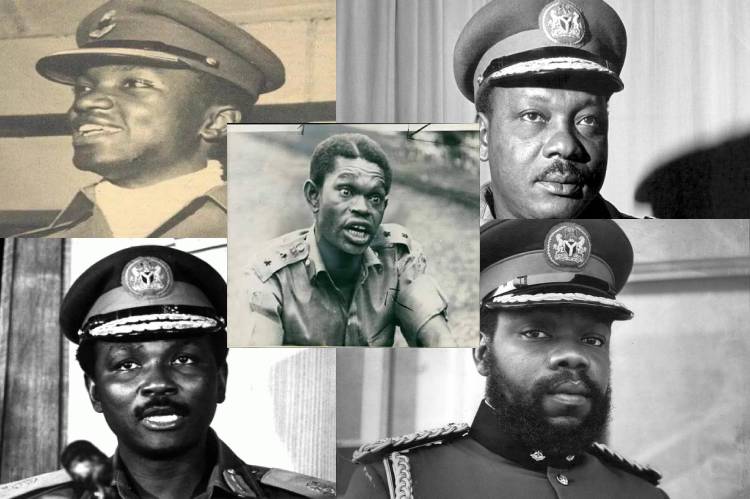
The conflict resulted from political, economic, ethnic, cultural, and religious tensions following Nigeria’s decolonization from the UK in 1960-1963.
Immediate causes in 1966 included military coups, anti-Igbo pogroms in Northern Nigeria, and a power struggle among ethnic groups. Within a year, Nigerian troops surrounded Biafra, capturing key areas and imposing a blockade, leading to mass starvation. Approximately 100,000 military casualties occurred, with 500,000 to 2 million Biafran civilians dying from starvation. The war, alongside the Vietnam War, was among the first televised conflicts globally.
The Nigerian government received support from the UK and the Soviet Union, while Biafra gained backing from France, Israel (after 1968), and others. The United States remained officially neutral, viewing Nigeria as a British responsibility. The war revealed flaws in pan-Africanism, showcased the diversity of African peoples, and exposed weaknesses in the Organization of African Unity.
The conflict’s aftermath saw the political marginalization of the Igbo, with no Igbo president since. Igbo nationalism and secessionist groups like the Indigenous People of Biafra emerged. The war’s background involves ethnic divisions stemming from colonial amalgamation in 1914, with cultural, religious, and political differences among the Igbo, Hausa-Fulani, and Yoruba. Nigeria’s independence in 1960 further fueled regional disparities, leading to the emergence of ethnic-based political parties and competition for power.
The federal structure established by the British exacerbated economic, political, and social differences. The 1964 elections highlighted ethnic and regional divisions, and reports of fraud intensified tensions. Economic issues, such as oil discoveries and resource distribution, also played a role. Nigeria’s First Republic, established in 1963, witnessed labor strikes and political unrest.
The military coup of January 1966, led by Igbo officers, resulted in the deaths of political leaders, triggering ethnic and regional tensions. Subsequent coups and counter-coups unfolded, with Lieutenant-Colonel Yakubu Gowon eventually assuming power. Amidst escalating violence, the Eastern Region, led by Colonel Odumegwu Ojukwu, declared independence as Biafra in 1967. This marked the beginning of the Nigerian Civil War.
The conflict witnessed brutal persecutions, particularly against the Igbo in the North, leading to widespread killings and mass migration to the Eastern Region. The federal government’s economic blockade intensified the humanitarian crisis in Biafra. The war ended in January 1970 when Biafra surrendered to Nigerian forces. The aftermath left lasting scars on Nigeria’s socio-political landscape, contributing to subsequent challenges and conflicts in the nation’s history.
The Nigerian Civil War remains a pivotal chapter in Nigeria’s history, reflecting the challenges of post-colonial nation-building and the complexities of managing diverse ethnic and regional identities. The consequences of the conflict continue to shape discussions on governance, unity, and identity in modern Nigeria.
